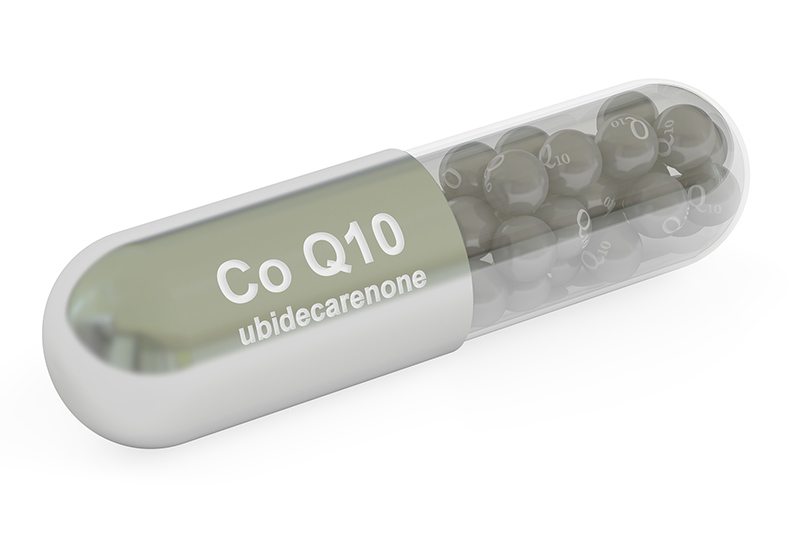What is a Statin Drug?
Statins are a classification of drugs used to lower cholesterol in the human body. The drugs limit the production of cholesterol in the liver.
What is Cholesterol?
Cholesterol is a type of lipid (fat) molecule that is either manufactured in the liver or acquired when we eat meats, eggs or dairy products. Cholesterol in and of itself is not bad. Actually, you can't live without cholesterol which is manufactured daily in the liver and then transported to the blood where it assists in many body functions such as:
- Manufacturing of sex hormones such as estrogen and testosterone
- Manufacturing of adrenal hormones such as cortisol
- One of several building block for bile in the liver
- Converts sunshine to vitamin D
- Insulates nerve fibers like the outer coating of an electric wire
- Helps in the absorption of vitamin A, D, E, and K
Different Types of Cholesterol?
There are two basic types of cholesterol:
LDL or low density lipoproteins, also known as "Bad Cholesterol". LDL carries cholesterol form the liver to cells in the body. A harmful rise in LDL can cause arterial disease or fatty plaque build-up in the arteries.
HDL or high density lipoproteins, also known as "Good Cholesterol". HDL takes the cholesterol away from the cells and carries it back to the liver where it can be eliminated. HDL is believed to be able to prevent arterial disease or fatty plaque build-up in the arteries.
What are Triglycerides?
Triglycerides are the chemical forms of fat that are present in the blood. Cholesterol combined with triglycerides form the total fat in the blood.
Triglycerides enter the body through the fats in our diet but can also be formed by the body if it needs energy by converting stored carbohydrates into fats. Elevated triglyceride levels are also considered to be a risk factor for developing arterial disease. High LDL levels tend to run with high triglyceride levels.
Normal Cholesterol and Triglycerides Levels
CHOLESTEROL (Total)
- Normal Range: 100-199 mg/dl
- Borderline: 200-239 mg/dl
- High: 240 and above mg/dl
TRIGLYCERIDES
- Normal Range: 150 mg/dl (or below)
- Borderline: 150 - 199 mg/dl
- High: 200 - 499 mg/dl
- Extremely High: 500 mg/dl (or greater)
LDL
- Normal Range: 0-99 mg/dl
- Near Optimal: 100-129 mg/dl
- Boderline High: 130-159
- High: 160-189
- Very High: 190 and above
HDL:
- Optimal Range: 60 mg/dl (or greater)
- Good Range: 50-59 mg/dl
- Poor Range: 40-49 mg/dl (or below)
What Causes High Cholesterol Levels
POOR NUTRITION: consuming foods high in saturated fats such as red meat, sausage, milk, eggs, dairy, cheese and foods high in carbohydrates which turn into fat such as cakes, cookies, pies candy and junk food in general.
SEDENTARY LIFESTYLE: Lack of exercise and working in a job that involves a lot of sitting
BODYWEIGHT: Individuals who are Obese or overweight tend to have higher LDL levels and lower HDL levels.
SMOKING: Smokers tend to have higher LDL levels and lower HDL levels.
ALCOHOL: Individuals who consume too much alcohol tend to have higher LDL levels and lower HDL levels.
Natural Treatment of High Cholesterol Levels
- Regular Exercise
- Good Nutrition
- Avoid Foods High in Saturated Fats
- Weight Loss
- Avoid Alcohol
- Stop Smoking
Cholesterol Controlling Medications
Statins - A group of medicines that block an enzyme (HMG-CoA reductase) in your liver that produces cholesterol. Some examples of these medications are as follows:
- Lipitor
- Lovastatin
- Fluvastatin
- Pravastatin
- Simvastatin
- Atorvastatin
- Rosuvastatin
- Zocor
- Crestor
- Pravachol
The Problem with Statins
In blocking the enzyme (HMG-CoA reductase) to reduce the amount of cholesterol your liver produces, an essential nutrient responsible for energy production of your muscle system is also disturbed. This essential nutrient is known as CoQ10, or coenzyme Q10. It is more scientifically known as ubiquinone. As a result the most common reported side effect of statin use is muscular aches and pains.
Other common side effects include:
- Muscle Weakness and Fatigue
- Rhabdomyolysis
- Memory Loss, Thinking and Concentration Difficulties
- Altered Liver Function
- Depression and Irritability
- Headaches, Joint pains and Abdominal pains
- Peripheral Neuropathy
- Fatigue
- Sleep Problems
Supplement with CoQ10
Studies show that Statins can reduce Cholesterol levels by 40-50%. It only makes sense that there is a similar corresponding reduction in your CoQ10 levels which can trigger many of the side effects previously mentioned. There are no known side effects to proper supplementation of CoQ10 making an addition of the supplement to your daily intake regimen just plain old common sense.
Suggested Dose of CoQ10:
100 mg - one to two times per day
Benefits of Supplementing Your Diet with CoQ10
According to an article on the Mayo Clinic Website, supplementing your diet with CoQ10 can be beneficial in helping the following disorders:
- High Blood Pressure
- Age-Related Macular Degeneration
- Alzheimer's Disease
- Angina (Chest Pains)
- Asthma
- Chronic Fatigue Syndrome
- Gum Disease (Periodontitis)
- Heart Attack Recovery
- Lipid Lowering Adjunct to Statin Therapy
- Migraine Headaches
- Parkinson's Disease
For more information, this article can be referenced at:
http://www.mayoclinic.com/health/coenzyme-q10/NS_patient-coenzymeq10/DSECTION=evidence
If you, or a loved one, are experiencing pain contact our office to schedule a free NO obligation consultation with the doctor or email Dr. Garber with a question concerning your case for a quick response. Garber Chiropractic Care Center 770-386-7707
Chiropractic Care and Pain Relief for Cartersville, Acworth, Taylorsville, White and Euharlee GA.
